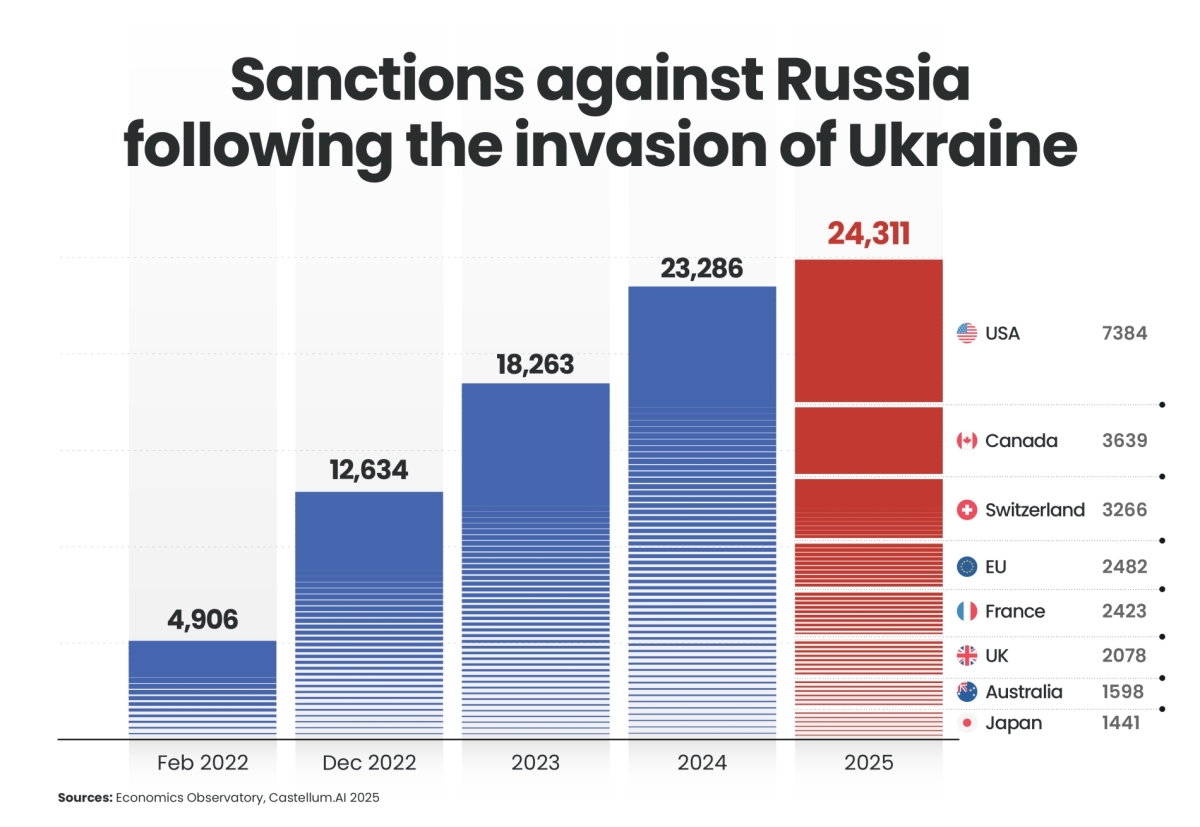Shortly after Russia’s full-scale invasion of Ukraine in February 2022, Western countries imposed a vast array of sanctions aimed at crippling Russia’s economy and pressuring President Vladimir Putin to end the war.
These measures, enforced by the US, EU, UK, Japan, Canada, and Australia, included restrictions on Russia’s financial sector, exclusion from SWIFT, trade embargoes on strategic goods, and sanctions on individuals and firms linked to the Kremlin or the military campaign. By January 2025, approximately 1,733 individuals and 382 entities in the UK, and nearly 2,400 individuals and entities in the EU, were subject to sanctions, resulting in billions of dollars and pounds in frozen assets.
Russia’s GDP remained resilient despite Western sanctions due to massive military spending, redirected oil and gas exports to Asia, and parallel trade through third countries. High energy prices, strict monetary management, labour shortages fueling wages, and deepened ties with non-Western partners further supported growth, though long-term sustainability remains fragile.
The US’s Office of Foreign Assets Control takes a more aggressive approach than fragmented EU and UK systems. Some frozen state assets are being mobilised to support Ukraine, but using them as leverage to end the war remains complex.









